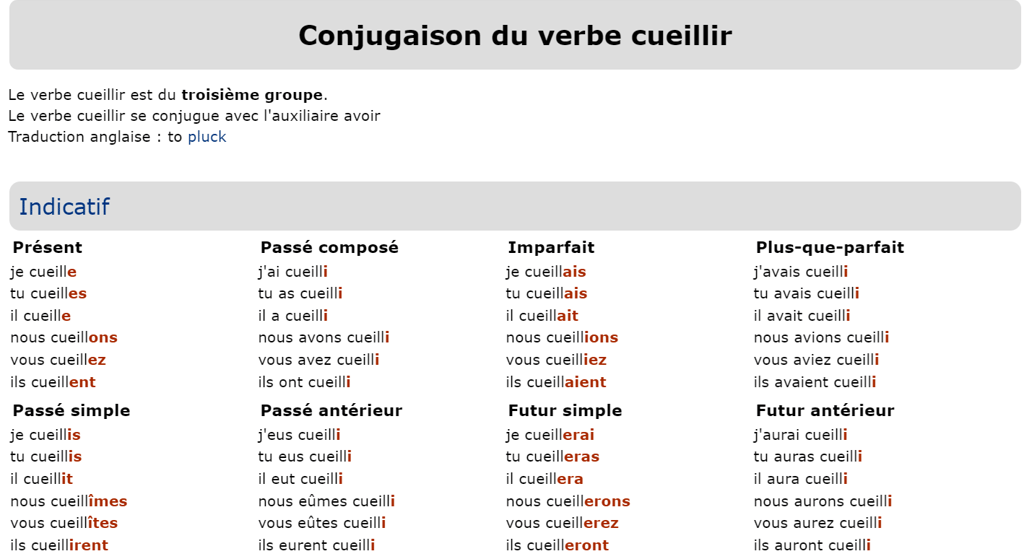Master French Verb Conjugations Easily with This Step-by-Step Guide
Struggling with French verb conjugations? This step-by-step guide will help you master regular and irregular verbs, learn tenses effectively, and gain confidence in speaking and writing French.


How to Finally Master French Verb Conjugations Without Stress
Introduction
For many French learners, verb conjugation is one of the biggest challenges. Unlike English, where verbs stay relatively simple, French verbs change depending on the subject, tense, and sometimes even mood. Add to that irregular verbs, and it’s no wonder students feel overwhelmed.
But here’s the good news: with the right method, French conjugation becomes logical and manageable. In this article, we’ll break down the process step by step, give you clear strategies, and provide tips to practice efficiently. Whether you’re preparing for the DELF, DALF, TEF, TCF, or just want to improve your French for daily life, this guide is for you.
Step 1: Understand Verb Groups
French verbs are divided into three groups, and knowing which group a verb belongs to will make conjugation much easier.
First Group (-ER verbs)
These are the most common and the easiest to learn. Examples: parler (to speak), aimer (to like/love).
Je parle (I speak)
Tu parles (You speak)
Il/elle parle (He/she speaks)
Second Group (-IR verbs, regular)
These verbs follow a consistent pattern. Example: finir (to finish).
Je finis (I finish)
Nous finissons (We finish)
Third Group (irregular verbs)
This group includes verbs ending in -ir, -oir, -re, and irregular -er verbs. Examples: être (to be), avoir (to have), aller (to go). These need to be memorized individually.
Tip: Start with -ER verbs. Once you master their pattern, the others will feel less intimidating.
Step 2: Learn Present Tense First
The present tense is the foundation of French conjugation because it’s used most often in daily conversations.
Example with parler (to speak):
Je parle (I speak)
Tu parles (You speak)
Il/elle parle (He/she speaks)
Nous parlons (We speak)
Vous parlez (You speak, formal/plural)
Ils/elles parlent (They speak)
Once you know this model, you can apply it to hundreds of verbs.
Practice by making short sentences with common verbs: manger (to eat), travailler (to work), écouter (to listen).
Step 3: Move to Essential Tenses
After mastering the present tense, focus on the tenses most useful in everyday speech:
Passé composé (Past tense)
Used for completed actions.
Example with manger: J’ai mangé une pomme (I ate an apple).Futur proche (Near future)
Expresses what you’re about to do.
Example: Je vais partir (I’m going to leave).Imparfait (Imperfect)
Describes ongoing or habitual past actions.
Example: Quand j’étais petit, je jouais au football (When I was little, I used to play football).
These three tenses (present, passé composé, imparfait) cover 80% of daily French conversations.
Step 4: Tackle Irregular Verbs Gradually
Irregular verbs may seem like chaos, but the key is frequency. Some verbs appear constantly, so it’s worth memorizing them first:
Être (to be)
Avoir (to have)
Aller (to go)
Faire (to do/make)
These verbs are the backbone of French sentences. Once you master them, you’ll understand a large portion of conversations.
Step 5: Use Tools and Practice Consistently
Conjugation requires repetition. Luckily, many tools can help:
Apps: Bescherelle app, Conjugaison-fr, or general apps like Duolingo.
Flashcards: Create digital or paper flashcards for verb forms.
Writing practice: Keep a short daily journal in French.
Speaking: Practice aloud. Even five minutes a day makes a difference.
Bonus tip: Use songs and TV shows. Hearing verbs in context reinforces memory naturally.
Step 6: Create a Personal Study Routine
Here’s a simple daily plan you can follow:
10 minutes: Review one verb group or tense.
10 minutes: Write 5–10 sentences using the new forms.
10 minutes: Read or listen to French content, focusing on verbs.
With 30 minutes a day, you’ll see massive improvement in just a few weeks.
Conclusion
French verb conjugation may seem like a mountain at first, but with a step-by-step approach, it becomes much easier to climb. Start with regular verbs, focus on essential tenses, and gradually add irregular verbs. Combine daily practice with real-life examples from books, music, or TV, and you’ll gain confidence faster than you think.
Remember: mastery doesn’t come from memorizing endless charts—it comes from consistent practice in context. Stay patient, practice daily, and soon you’ll use French verbs naturally in conversation.